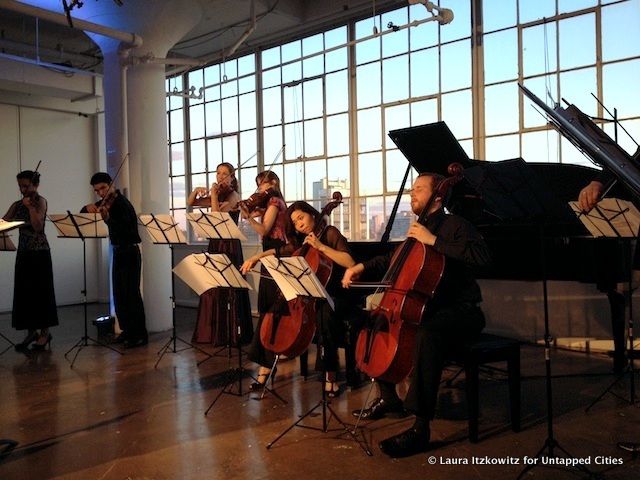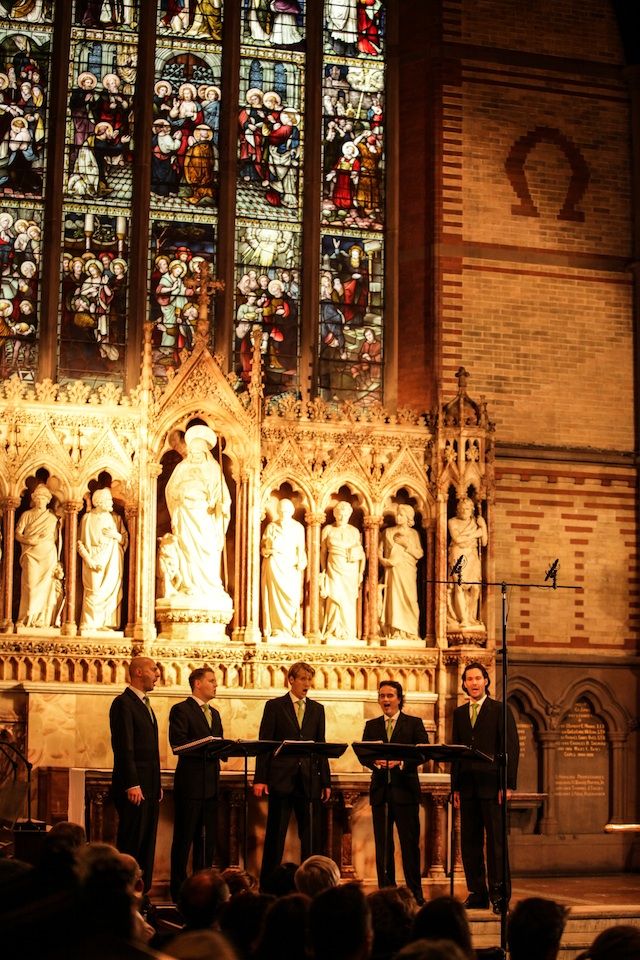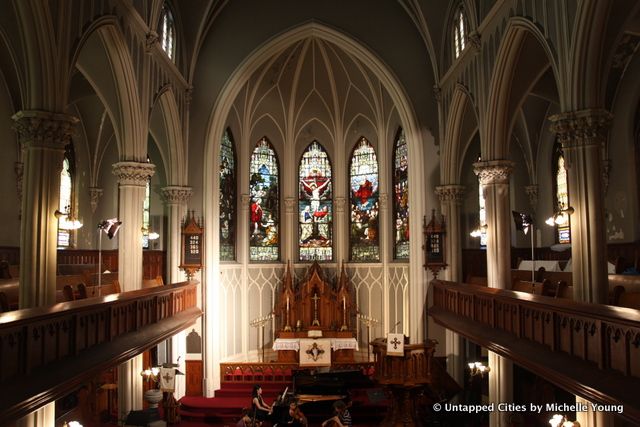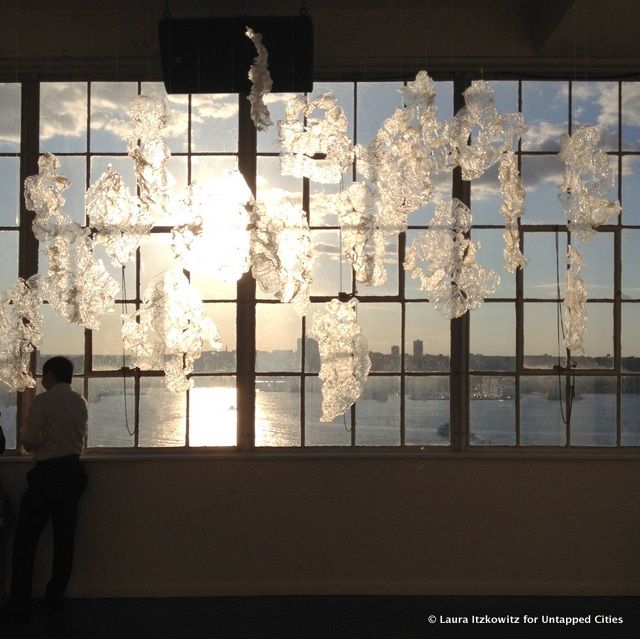Artist-Led Tour of "ENCORE" Photo Exhibit w/ Mark S. Kornbluth
Join photographer Mark S. Kornbluth for a visual exploration of NYC's Broadway theaters at Cavalier Galleries!


Untapped Cities is a proud media partner of the Chelsea Music Festival, now in its fifth season. This year’s festival showcases German and Brazilian music, celebrating the anniversaries of C. P. E. Bach (300), Richard Strauss (150) and Heitor Villa-Lobos (55). Amid the preparations and concerts, we sat down with husband and wife team, Ken-David and Melinda Lee Masur, to discuss the music festival’s growth, the special venues hosting this year’s concerts, and what they love about Chelsea.
Untapped Cities: Are there any concerts in this season that you’re especially excited about?
Melinda: The opening and closing night are always our marquee events. We have our visual artists display their artwork, we have the buzz of opening and closing night, and then we have our chefs do their curated receptions, which are really special. People often don’t realize what’s awaiting them after the concert. The chefs have put as much thought and creativity into planning their menus as the musicians have for their music. So those are our marquee events, and then every night we have some kind of reception.

Opening night gala at Canoe Studios in the Starrett-Lehigh Building
K-D: We always try to create a certain arch, so from the opening of course we’re doing something quite big, and the world premiere commission that we’ve given to the composer in residence this year is featured for a large ensemble on opening night, but that doesn’t mean we don’t have other premiums. But the components of the “hear, taste, see” motto that we have going through the festival has slightly different weights for each event. So I think that’s what interesting—to see the interplay of those three dimensions coming together in different ways, and the different venues, and the food is different every night.
M: So for instance the Strauss evening is going to be special because Strauss is known for his operatic drama put into every piece. So even if you have a violin sonata, it feels like that epicness and then we’re going to have the dessert reception with our culinary artist in residence. Thursday night is on the grounds of the General Theological Seminary—such a beautiful hidden oasis in Manhattan. It takes up a whole city block. It’s sort of the origin of Chelsea. It used to be called Chelsea Farms. So we do a concert in the chapel—just a really intimate special, you forget you’re in New York City kind of moment.

Last year’s concert at the General Theological Seminary. Photo courtesy of the Chelsea Music Festival.
UC: Can you tell us about some of the venues you’ve chosen and what is special about them?
K-D: This is the St. Paul’s German Lutheran Church in the city, and it’s the only remaining (there used to be a few) German-speaking churches in the city. This is the only remaining one. There’s also under the auspices of the German community and the German consulate. In fact, the pastor is also the teacher at the German school of New York, and you have a lot of connections with the German community that way. It has a lot of interesting history. It also has a good organ. We have a few concerts here, and in the past we had a concert with one of the great organists—Steven Tharp—here.
What’s interesting is I’ve known this church for a very long time because as a boy growing up, knowing a lot of the German community, of course people would sometimes meet here. At the time, of course, Chelsea was a completely different neighborhood 20 years ago…. This space is completely new, completely redone, but when you go up to the sanctuary, it’s a different story. There’s a lot of work to be done, and it’s really very interesting to see how much you can almost smell the history.

St. Paul’s German Lutheran Church
M: And we thought it would be really neat to do our jazz finale here. Yesterday with the lighting designer, to transform this old Lutheran church into this hip place…
K-D: I think that our goal is for people—because they don’t have that many events here, they have some. I think the church wants to be here for the neighborhood and be part of the transformation, and be here for the families moving in, as it was in the beginning.
M: Like a pillar of the community.
K-D: And just for people to see what can happen in here—that it’s not this dusty old place. It can be groovy again, and it can serve different kinds of audiences.
M: And opening night is at Canoe Studios in the Starrett-Lehigh Building. And so this has amazing views, and it’s sort of a blank canvas. So our visual artist is setting up an installation for that night.

K-D: We mainly wanted to have a good balance of venues, between sort of those types—the blank canvases and gallery-type spaces with nice views. Some of them quite hidden. Also our criteria is acoustics. So we work with any kind of acoustics, but we’re interested in finding interesting characteristics so each venue has a different personality that we can work with, that we can collaborate with, and help bring out. At Canoe, it’s mainly used for commercial videography.
UC: And more broadly, why Chelsea?
K-D: Some people say it’s interesting when you live in New York for a long time, and all the time you feel like, wow there’s areas that you don’t know much about, and you think that you know New York pretty well. For me personally, I think that both of us, we had this experience that we don’t know much about Chelsea. We’re like, wow, there’s all this stuff happening!
Of course, there was also, a few years ago, this time of change. The High Line started the same time that we started as well. So it has its fifth year celebration as well. All these things happening—I think it’s intriguing to us. I didn’t know so many things. So for instance, that it was the largest concentration of art galleries in the country, or that all of the Food Network, Chelsea Market, and all these culinary things were here. And I think that also, having been away from New York, for me that was something that I was interested in finding out more about.
So the interest in that area grew more than I previously might have had, and so it was nice to say to Melinda, “we actually want to explore this.” And the fact that you have all these different art forms here in the neighborhood. Wouldn’t it be great if we could bring them together based on musical themes? And also make sure that the neighborhood has this festival as families are moving in, as communities are moving in, that we celebrate what the creativity in Chelsea that it has to offer. And then obviously, you being interested in the venues, the architecture and so forth, has been great for us to see.
Because we want to always be in different kinds of venues, depending on the theme, that are still intimate, where’s it not too big and people feel like we are approachable and there’s no separation between audience and performers. So that is also one of our criteria. And to be able to see that connection with the venues and the kinds of communities each venue is connected to has been really eye-opening….
M: It’s basically just a huge inspiration. It’s our hub, we’re based here. It’s inspiring to be here with all the galleries and all the creative people that are here.
Subscribe to our newsletter